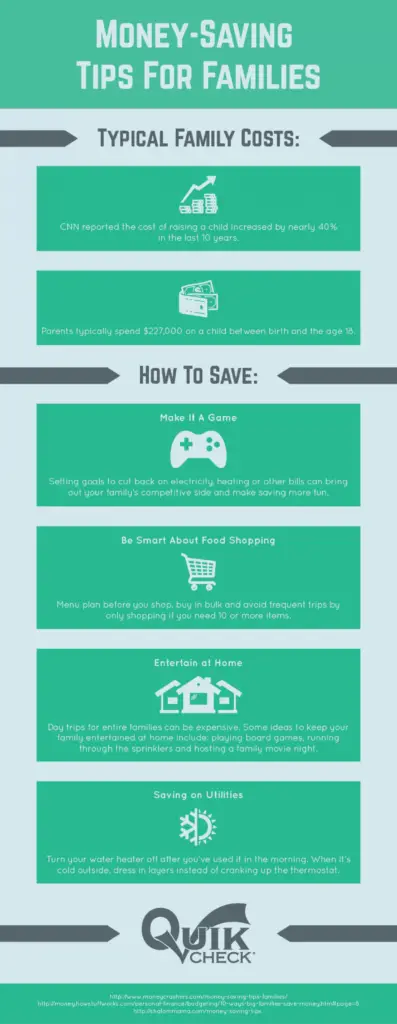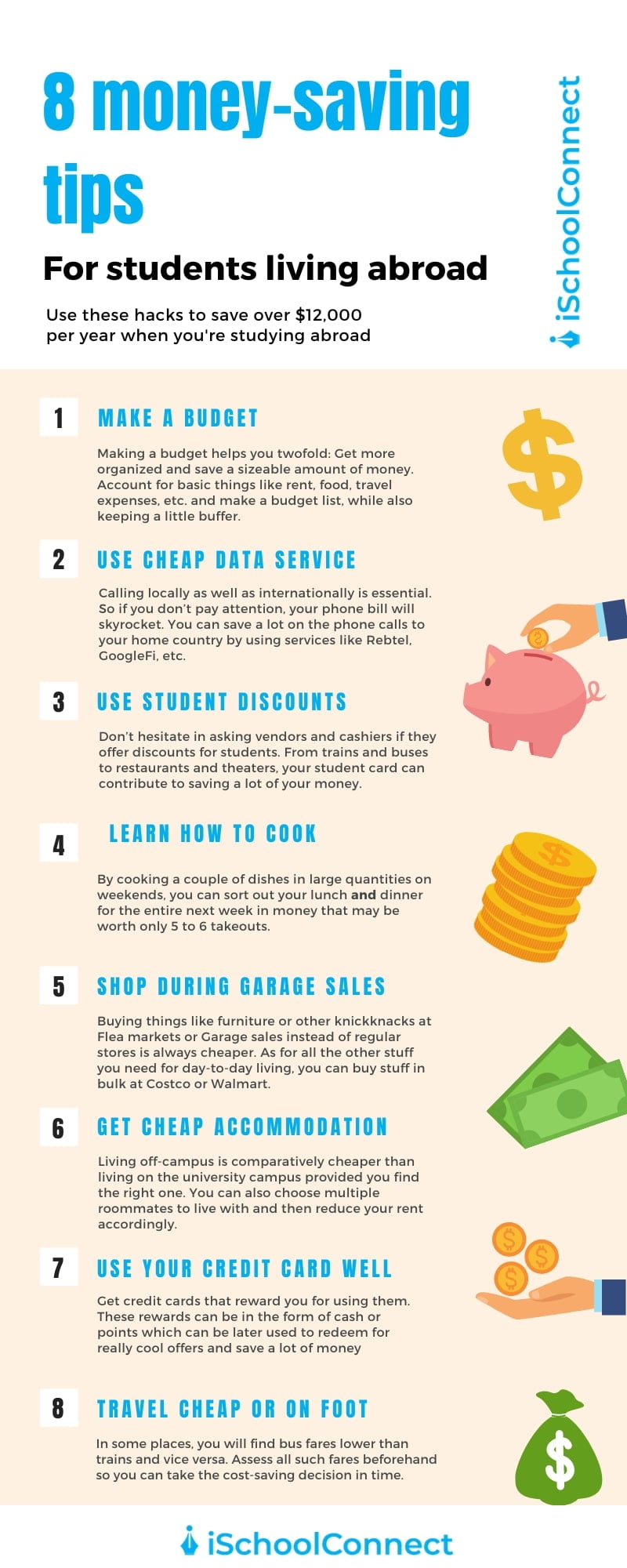Are you a part of a big family and looking for ways to save money? Look no further! In this article, you will discover 10 practical tips that can help you save a significant amount of cash while still providing for your loved ones. From meal planning and bulk shopping to DIY projects and budgeting, these strategies are tailored specifically for big families, ensuring that you can enjoy financial stability while enjoying all the joys and challenges of a bustling household. So get ready to learn some valuable money-saving tips that will make a big difference in your family’s budget!

Grocery Shopping
Make a List
When it comes to grocery shopping, one of the best things you can do to save money is to make a list before you go. This helps you stay focused and avoid impulse purchases. Take a few minutes to plan your meals for the week and make a list of all the ingredients you need. By sticking to your list, you’ll avoid buying unnecessary items and keep your grocery budget in check.
Shop in Bulk
Another great way to save money on groceries is to shop in bulk. Buying larger quantities of items not only saves you money, but it also reduces the number of trips you need to make to the store. Look for items like rice, pasta, canned goods, and frozen fruits and vegetables that you can stock up on. Just make sure to check the expiration dates and store them properly to avoid waste.
Use Coupons
Coupons are a tried-and-true way to save money on groceries. Take advantage of coupons from your local newspaper or online coupon websites. Clip the ones for products you regularly buy, and keep them organized in a folder or envelope. When you plan your shopping trips, make sure to bring your coupons along. Using coupons can add up to significant savings in the long run, so don’t dismiss them!
Plan Meals in Advance
Meal planning is not only a time-saver, but it’s also a great way to save money. When you plan your meals in advance, you have a clear idea of what ingredients you need to buy, and you can avoid last-minute takeout or expensive convenience foods. Take some time each week to sit down and plan your meals, considering what you already have in your pantry and what’s on sale at the grocery store. This way, you can make the most out of your grocery budget and ensure that nothing goes to waste.
Budgeting
Track Your Expenses
To successfully manage your finances, it’s important to track your expenses. Keep a record of every cent you spend, whether it’s on groceries, bills, or entertainment. This will give you a clear picture of where your money is going and help you identify areas where you can make cuts. There are many mobile apps and budgeting software available that can make tracking your expenses a breeze.
Set a Monthly Budget
Setting a monthly budget is essential for keeping your finances in check. Take the time to sit down and analyze your income and expenses, and allocate a certain amount for each category, such as groceries, bills, and savings. Stick to your budget as closely as possible and make adjustments as needed. When you have a clear budget in place, it’s easier to make informed financial decisions and stay on track towards your goals.
Cut Back on Non-Essential Items
When you have a big family, it’s crucial to prioritize your expenses. Take a close look at your spending habits and identify non-essential items that you can cut back on. For example, consider reducing the number of times you eat out or buying fewer items of clothing. By making small sacrifices in certain areas, you can free up more money for essential items and savings.
Look for Deals and Discounts
In today’s digital age, finding deals and discounts has never been easier. Before making a purchase, do some research to see if there are any promotions, coupons, or loyalty programs you can take advantage of. Sign up for newsletters from your favorite stores to stay updated on sales and special offers. By being proactive and keeping an eye out for deals, you can maximize your savings and get the most bang for your buck.
Meal Planning
Cook in Bulk
Cooking in bulk is a fantastic way to save time and money while ensuring your family has delicious and nutritious meals. Choose recipes that can easily be scaled up and make larger batches that can be divided into individual portions and stored in the freezer. This not only saves money on ingredients, but it also eliminates the temptation of ordering takeout on busy days. With a freezer stocked with homemade meals, you’ll have peace of mind knowing that your family is well-fed without breaking the bank.
Buy Generic Brands
When it comes to groceries, buying generic brands can help you save a significant amount of money. In many cases, the store-brand products are just as good as the more expensive name-brand items. Compare prices and ingredients to see if the generic option is a viable choice. You’ll often find that the savings are well worth it, and your family won’t even notice the difference!
Utilize Leftovers
Leftovers are a goldmine when it comes to saving money. Instead of throwing away extra food, get creative and turn it into another delicious meal. For example, leftover roasted chicken can be transformed into chicken salad or added to a pasta dish. By utilizing leftovers, you not only reduce food waste but also save money by stretching your groceries further.
Plant a Vegetable Garden
One of the best ways to save money on fresh produce is by growing your own vegetable garden. Gardening is a rewarding and cost-effective hobby that can provide you with a bountiful harvest. Start small with easy-to-grow vegetables like tomatoes, lettuce, and herbs. Not only will you save money on groceries, but you’ll also enjoy the satisfaction of eating homegrown, organic produce.
Energy Efficiency
Switch to LED Bulbs
Making the switch to LED bulbs is a simple and effective way to save energy and reduce your electricity bill. LED bulbs are much more energy-efficient than traditional incandescent bulbs and can last for several years before needing to be replaced. While LED bulbs may initially cost a bit more, the long-term savings are well worth it.
Unplug Electronics
Even when your electronics are not turned on, they can still consume energy if left plugged in. This is known as “phantom power” or “vampire energy.” To save energy and lower your electricity bill, make a habit of unplugging electronics when they’re not in use. Alternatively, you can use power strips with on/off switches to easily cut off power to multiple devices at once.
Insulate Your Home
Proper insulation is key to keeping your home energy-efficient and comfortable year-round. Insulating your walls, attic, and windows helps to reduce heat loss in the winter and heat gain in the summer. This means that your heating and cooling systems won’t have to work as hard, resulting in lower energy bills. Consult with a professional or do some research to determine the best insulation options for your home.
Use Energy-Saving Appliances
When it’s time to replace old appliances, consider investing in energy-saving models. Energy Star-certified appliances are designed to use less energy, which translates to long-term savings on your utility bills. Look for appliances that have high energy efficiency ratings and features like smart controls and sensors that optimize energy usage. While these appliances may have a higher upfront cost, the energy savings over time make them a worthwhile investment.

Entertainment
Explore Free Activities
Entertainment doesn’t have to be expensive. There are plenty of free activities that you can enjoy with your family. Take advantage of local parks, hiking trails, and playgrounds. Pack a picnic and spend a day in nature. Visit museums and art galleries on their free admission days. Look for community events and festivals that offer free entertainment. By exploring free activities, you can create lasting memories without spending a fortune.
Utilize Public Libraries
Public libraries are a fantastic resource for entertainment and education. Borrowing books, magazines, and movies from the library is a great way to enjoy new content without having to purchase them. Many libraries also offer free programs and events for children and adults, ranging from storytime sessions to workshops and lectures. Take advantage of what your local library has to offer and save money while expanding your horizons.
Start a Family Game Night
Family game nights can be a fun and cost-effective way to enjoy quality time together. Dig out those board games that have been gathering dust and gather the family for an evening of friendly competition. Alternatively, you can create your own games using materials you already have at home. Not only will you save money on entertainment, but you’ll also create cherished memories and strengthen family bonds.
Take Advantage of Community Events
Many communities organize free or low-cost events throughout the year. From concerts and outdoor movie screenings to fairs and parades, there’s usually something happening that you and your family can enjoy. Keep an eye on local event listings, community bulletin boards, and social media pages for upcoming events. By participating in community events, you can have a great time and support local initiatives without straining your budget.
Clothing and Accessories
Shop for Sales and Clearance
When it comes to clothing and accessories, shopping sales and clearance racks can save you a significant amount of money. Keep an eye out for end-of-season sales, holiday promotions, and clearance events. Many stores offer deep discounts on out-of-season items to make room for new inventory. By being patient and strategic with your purchases, you can get quality clothing and accessories at a fraction of the original price.
Organize Clothing Swaps
Clothing swaps can be a fun and economical way to update your wardrobe. Gather friends, family, and neighbors and organize a clothing swap event. Everyone can bring items they no longer wear but are still in good condition. Participants can then swap clothes, shoes, and accessories, giving everyone the opportunity to freshen up their closets without spending any money. It’s a win-win situation for everyone involved!
Repair Clothing Instead of Replacing
Before you toss out a garment that’s damaged or showing signs of wear, consider repairing it instead. Learning a few basic sewing skills can go a long way in extending the lifespan of your clothing. From fixing small tears to replacing buttons, you can save money by keeping your clothes in good condition. If you don’t feel confident in your sewing skills, consider taking your items to a local tailor or seamstress for repairs.
Buy Secondhand
Shopping for secondhand clothing and accessories is not only budget-friendly but also environmentally conscious. Thrift stores, consignment shops, and online platforms are excellent resources for finding gently used items at a fraction of the cost. You’ll be surprised by the quality and variety of clothing available. By purchasing secondhand, you can stay stylish without breaking the bank.

Education
Research and Apply for Scholarships
If you or your children are pursuing higher education, scholarships can significantly reduce the financial burden. Take the time to research and apply for scholarships that you are eligible for. There are countless scholarships available based on factors such as academic merit, extracurricular activities, and personal background. Keep track of deadlines and submit your applications early to maximize your chances of receiving financial assistance.
Utilize Online Learning Resources
Learning doesn’t have to be limited to traditional classroom settings. There are numerous online resources that offer free or affordable courses on a wide range of topics. Websites like Coursera, Khan Academy, and Udemy provide access to courses taught by experts from prestigious institutions. Take advantage of these resources to enhance your skills, explore new interests, or even earn certifications without the hefty price tag.
Buy Used Textbooks
Textbooks can be a major expense for students. Instead of shelling out hundreds of dollars for brand new textbooks, consider buying used copies. Many college bookstores offer used textbooks at a fraction of the cost of new ones. You can also look for online marketplaces and book exchange groups where students sell their used textbooks. Just make sure to check the edition and condition of the book before purchasing.
Save on School Supplies
School supplies can add up quickly, especially if you have multiple children. To save money, start by taking inventory of what you already have at home. Many supplies, such as pens, pencils, and notebooks, can be reused from previous years. Look for sales and promotions at office supply stores and supermarkets. Buying in bulk can also save you money in the long run. Additionally, consider purchasing generic brands for items like folders, binders, and calculators. Remember, it’s the functionality that matters most, not the brand.
Transportation
Carpool or Use Public Transportation
Reducing your family’s reliance on individual vehicles can lead to significant savings. Carpooling with friends, neighbors, or coworkers can help you save on fuel expenses and reduce wear and tear on your vehicle. If available, opt for public transportation for daily commutes or outings. Public transportation is often more cost-effective than driving and can save you money on parking fees and maintenance.
Consolidate Errands
Consolidating your errands into one trip can help you save time, energy, and money. Make a list of the tasks you need to complete and plan your route accordingly to minimize driving. By reducing the number of trips you need to take, you’ll save on fuel expenses and reduce the overall environmental impact.
Maintain Proper Vehicle Maintenance
Taking care of your vehicle can have a significant impact on its efficiency and longevity. Regularly schedule maintenance checks to ensure that your vehicle is running optimally. This includes routine oil changes, tire rotations, and filter replacements. Properly inflated tires and clean air filters can improve fuel efficiency, saving you money on gas in the long run.
Consider Car Sharing
Car sharing programs can be a cost-effective alternative to owning a car, especially if you live in an urban area with good public transportation options. Instead of buying and maintaining a vehicle, you can use a car-sharing service when necessary. This can be particularly useful for occasional trips or situations where multiple vehicles are needed. Explore car-sharing options in your area to see if it’s a viable solution for your family’s transportation needs.

DIY Projects
Learn Basic Home Repair Skills
Learning basic home repair skills can save you a significant amount of money on hiring professionals. There are countless resources available, including online tutorials, books, and workshops. Start with small projects like fixing leaky faucets, painting walls, or replacing light fixtures. As you gain more confidence and skills, you can tackle more complex projects. Not only will you save money, but you’ll also gain a sense of pride and accomplishment from completing projects on your own.
Do Your Own Landscaping
Maintaining a beautiful yard doesn’t have to break the bank. Instead of hiring expensive landscaping services, consider doing it yourself. Research and learn about proper lawn care techniques, plant care, and pruning. Invest in essential gardening tools and make it a family project. Taking care of your own landscaping not only saves money but also provides an opportunity to spend quality time outdoors with your loved ones.
DIY Crafts and Gifts
Instead of purchasing expensive decorations and gifts, consider making your own. DIY crafts can be a fun and budget-friendly way to add a personal touch to your home and gift-giving. There are countless tutorials and ideas available online for a wide range of crafts. From handmade cards and customized photo frames to homemade candles and bath products, the possibilities are endless. Get creative and enjoy the satisfaction of creating unique items while saving money.
Make Homemade Cleaning Products
Commercial cleaning products can be expensive and often contain harsh chemicals. Making your own cleaning products is not only cost-effective but also safer for your family and the environment. Basic ingredients like vinegar, baking soda, and citrus fruits can be used to create effective and eco-friendly cleaning solutions. There are plenty of recipes available online that cater to different cleaning needs. By making your own cleaning products, you’ll keep your home sparkling clean without emptying your wallet.
Financial Planning
Create an Emergency Fund
One of the most important aspects of financial planning is creating an emergency fund. An emergency fund is a savings account that you can tap into in case of unexpected expenses or emergencies. Aim to save three to six months’ worth of living expenses in your emergency fund. Having this cushion will provide peace of mind and prevent you from going into debt when unexpected bills arise.
Invest Wisely for the Future
Investing is a crucial part of financial planning and can help you grow your wealth over time. Take the time to educate yourself about different investment options, such as stocks, bonds, mutual funds, and real estate. Consider working with a financial advisor who can guide you based on your risk tolerance and financial goals. Remember, investing is a long-term strategy, so be patient and stay informed about market trends.
Review and Update Insurance Policies
Insurance is an essential part of protecting your family’s financial well-being. Regularly review your insurance policies to ensure they adequately cover your needs and are up to date. Shop around for the best rates on auto, home, and life insurance by obtaining quotes from different providers. By comparing prices and coverage, you can potentially save hundreds of dollars each year on insurance premiums.
Seek Professional Financial Advice
If you’re unsure about how to best manage your finances, consider seeking professional financial advice. Financial advisors can provide personalized guidance based on your specific circumstances and goals. They can help you create a comprehensive financial plan, optimize your investments, and make informed decisions about budgeting, saving, and debt management. Working with a financial advisor can save you time, stress, and potentially a substantial amount of money in the long run.
In conclusion, there are numerous ways to save money in different areas of your life. By implementing money-saving strategies in grocery shopping, budgeting, meal planning, energy efficiency, entertainment, clothing and accessories, education, transportation, DIY projects, and financial planning, you can make a significant impact on your overall financial well-being. Remember, it’s about making conscious decisions and prioritizing your expenses to ensure that your hard-earned money goes further. Start small and gradually incorporate these money-saving tips into your lifestyle, and watch your savings grow over time.


